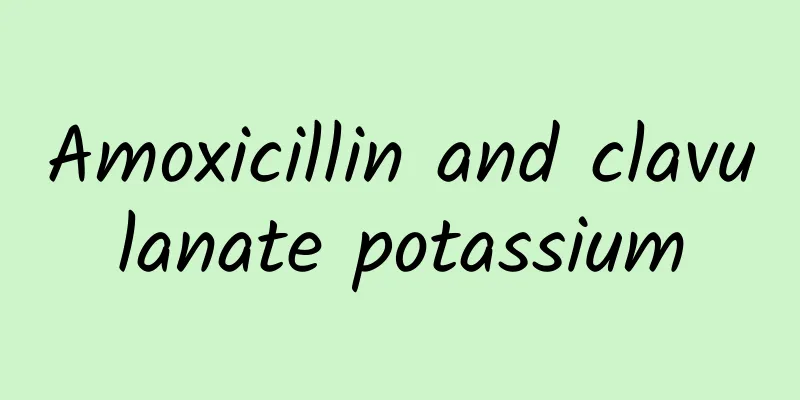How to treat and relieve hyperhidrosis of hands and feet

|
Hyperhidrosis of hands and feet is mainly manifested by excessive sweating in the palms and feet, and hyperhidrosis of hands and feet is generally related to spleen and stomach dysfunction. Many people don’t know how to treat hyperhidrosis of hands and feet. For the treatment of this type of local hyperhidrosis, you can generally choose medication and traditional Chinese medicine treatment. 1. Drug treatment Excessive sweating of hands and feet is medically known as "localized hyperhidrosis" and can be treated by taking some anti-acetylcholine drugs such as atropine or propantheline. However, drugs such as tranquilizers and anti-acetylcholine have certain side effects and are not suitable for long-term use. Therefore, they are often used in conjunction with traditional Chinese medicine in clinical treatment. 2. Traditional Chinese Medicine Treatment According to traditional Chinese medicine, excessive sweating of hands and feet is caused by spleen and stomach dysfunction, which can be divided into the following two types: deficiency and excess: 1. People with weak spleen and stomach. The spleen and stomach have the function of transporting water and eliminating dampness. Once this function is weakened, dampness and heat will accumulate in the body. Dampness and heat tend to move downward, causing excessive sweating at the extremities, especially the feet, which is more common, accounting for 70% to 80%. For those with weak spleen and stomach, it is recommended to cook porridge with bitter gourd, coix seed, yam, red dates, lotus seeds and other ingredients that have spleen-strengthening effects. You can also choose Mingyaotang's Xuhanting tea for conditioning, and use it in conjunction with external hand and foot sweat-removing Chinese medicine bags, which is very effective in regulating excessive sweating of hands and feet. In addition, you should strengthen exercise. Traditional Chinese medicine believes that exercise can replenish yang energy and change physical weakness. 2. Patients with spleen and stomach excess syndrome. It is mostly caused by excessive drinking and overeating spicy, fatty and sweet foods, accompanied by symptoms such as bad breath, bitter mouth, constipation, yellow and turbid urine, and thick and greasy tongue coating. It is recommended to drink less alcohol and try not to eat spicy food. 3. Surgical treatment Another method is surgical treatment. The sympathetic nerves that control the sweat glands in the hands are located in the second and third thoracic vertebrae, which are approximately located on the nipple line, and a little higher on both sides of the back spine. As long as the sympathetic nerves in these two sections are cut off, the purpose of stopping sweating in the hands can be achieved. Although surgical treatment for hand sweating is indeed effective, compensatory sweating often occurs after the hand sweating stops. Compensatory sweating means that after surgery, sweating in the upper body (above the nipples) almost stops, while the lower body is often wet. Except in extremely cold weather, compensatory sweating persists and does not decrease over time, but may increase instead. This is one of the most unbearable sequelae after surgery. |
<<: How to check cystitis? How to check for cystitis
>>: How to treat sweat stains on the body
Recommend
Facial dermatitis symptoms
I believe that everyone is familiar with the dise...
Symptoms of blood deficiency and dietary conditioning methods
In modern life, people consume a lot of blood and...
What does uterine blood flow signal mean?
The uterus is an organ in the female body that pr...
What is a normal blood sugar level for dinner?
Blood sugar is the sugar content in our blood, wh...
Is vanillin harmful to the baby's body?
Vanillin is an additive that adds milk flavor. We...
What are the effects and functions of wintergrass
Wintergreen lingcao is also known as ice grass. I...
What is Centella asiatica glycosides?
We rarely come into contact with Centella asiatic...
Early symptoms of sepsis
In our lives, the human body is inevitably invade...
Daily Uses of Huoxiang Zhengqi Water
For many people's home medicine cabinets, Huo...
What should I do if I have a bald patch?
If you are bald, you need to pay attention to whe...
Why is the glans big and thin behind?
Male reproductive health is a big issue nowadays....
Side effects of whitening injections
Every woman hopes to have skin as white as snow, ...
How can people with Qi deficiency lose weight? What are the methods for people with Qi deficiency to lose weight?
There are many types of obesity. The ways to lose...
There are so many small bubbles on my lips, what's going on?
There are often no warning signs of large blister...
What should people with blood clots eat?
In addition to medication, people with blood clot...









